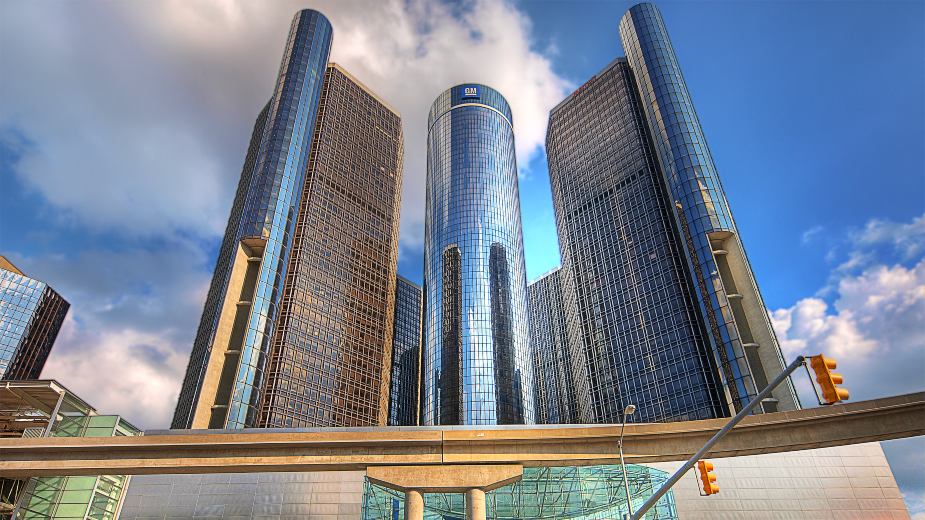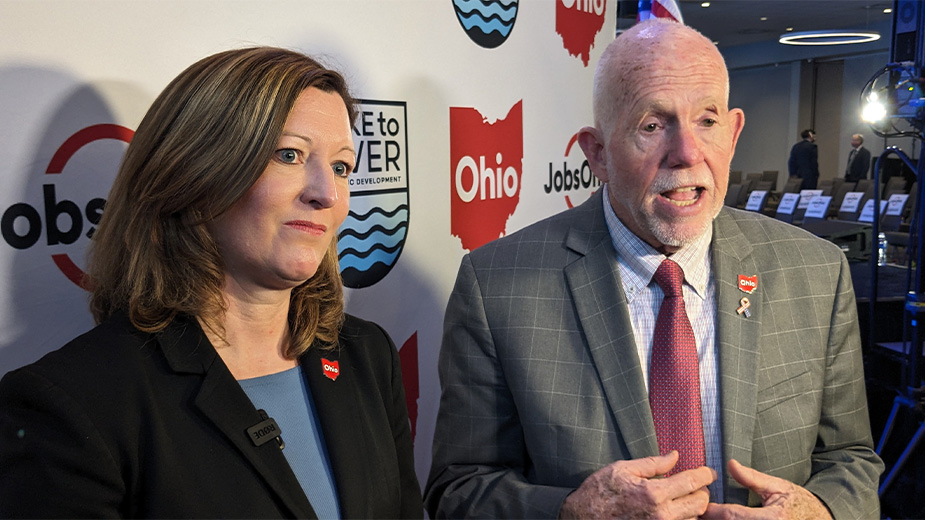Tax Authority Says GM Owes $28M for Violating Lordstown Agreement, Must Provide Valley $12 Million
YOUNGSTOWN, Ohio – The Ohio Tax Credit Authority determined this morning that General Motors LLC should refund the state of Ohio $28 million for violating tax credit agreements GM signed in 2008.
The automaker will also be responsible for paying $12 million in “community support” in the Mahoning Valley according to a forbearance agreement approved by the authority Monday morning.
The payments are due by Dec. 31, 2022, the tax authority said. Should GM not comply, further action could be taken against the automaker in respect to the clawback.
In June, The Business Journal and ProPublica first reported that Ohio was seeking a 100% clawback from GM related to two job creation and retention tax credit agreements it signed with the state worth $60.3 million. The state said the automaker reneged on those agreements when it closed its sprawling Lordstown plant in 2019.
“Today’s action protects taxpayer dollars, while also allowing for continued investment in the local community,” said Lydia Mihalik, director of Ohio Development Services Agency and chairperson of the Ohio Tax Credit Authority, in a statement. “Our team at Development is committed to ensuring taxpayers get a good return on their investments, supporting Ohio businesses and strengthening communities across the state.”
Although the clawback falls short of the total $60.3 million, the state’s action is significant, said Greg LeRoy, executive director of Good Jobs First, a nonprofit agency that tracks corporate subsidies and violations.
“In terms of clawbacks, the $28 million still stands as the biggest clawback we can point to,” LeRoy said. Yet he believes that the state should have pursued a total refund. “It’s kind of two-thirds of a loaf for taxpayers,” he said of the forbearance agreement.
The 2008 agreements specified that GM would keep employees at its Lordstown assembly plant until 2040. GM idled the plant in March 2019 and closed it in October of that year. The plant produced the Chevrolet Cruze, GM’s small passenger car.
GM said earlier that its tax liability should be removed or substantially reduced, noting the state should consider declining market conditions for small vehicles, which affected sales of the Cruze and forced the automaker to cancel production of the model.
The Ohio Development Services Agency took that issue under consideration, which led to a modified forbearance agreement that seeks $28 million in refunds to the state and $12 million in payments toward community support in the Mahoning Valley.
According to the agreement, the $12 million is targeted for education and job training support through Youngstown State University or other Ohio universities; community programs and educational outreach programs; and infrastructure assistance for the Village of Lordstown and the Mahoning Valley.
Also weighing on the decision was a new investment by GM for its $2.3 billion battery manufacturing plant under construction in Lordstown, Ultium Cells LLC – a joint venture with LG Chem. The tax authority awarded a 15-year, 1.95% job creation tax credit on that project at the meeting.
GM spokesman Dan Flores said in a statement that GM has accepted the terms of the agreement and appreciates the tax credit authority’s recognition of the automaker’s “substantial manufacturing presence across the state of Ohio, including our significant investments in the Mahoning Valley.”
“GM has invested more than $3.3 billion in Ohio since 2009,” Flores continued. “Separately, GM and LG Chem, via the Ultium Cells LLC joint venture, are building a more than $2.2 billion, state-of-the-art, battery cell manufacturing plant in Lordstown that will create more than 1,100 new jobs.”
Gov. Mike DeWine welcomed the decision.
Shortly after The Business Journal and ProPublica reported that the state was seeking a clawback, DeWine said the state was “not actively pursuing” the return and was looking for other ways for GM to invest the money across Ohio.
“GM has been a major employer in the state of Ohio for decades, investing in both the economy and our workforce,” he said. “While the decision to close the Lordstown plant was terrible news for workers and their families in the Mahoning Valley, today’s announcement will bring relief as well as investment by GM who has committed to investing $12 million in the local community for workforce, education, and infrastructure needs.”
“Ohio has a long and proud history with General Motors,” Lt. Gov. Jon Husted added in a statement. “When I spoke with GM on Friday to confirm their commitment to Ohio, I emphasized our desire for Ohio to be the place where they invest in their future and that we would be a reliable partner in providing the workforce and business environment they will need to compete and succeed.”
JobsOhio, the private development arm that is contracted with the state to spearhead economic development projects, said Lordstown was in competition with Tennessee for the project.
According to JobsOhio, Ultium Cells will generate $45 million in new payroll and the creation of 1,000 positions. The tax incentives – worth an estimated $13.8 million over the term of the agreement — take effect on Jan. 1, 2023 and will remain in place until Dec. 31, 2037, the tax authority said.
Work is underway at the site, a nearly 2 million-square-foot manufacturing plant that will produce lithium ion batteries for electric vehicles.
“GM remains involved in auto production in Lordstown to produce batteries for electric vehicles which is also good news for the future of the automotive industry,” DeWine said.
Image via Paul (Dex) Bica from Toronto, Canada [CC BY 2.0]
Related Coverage
June 30: Yost Demands GM Repay $60M in Tax Credits for Lordstown Plant
June 24: DeWine: Ohio ‘Not Actively Pursuing’ $60M Clawback from GM for Lordstown Closure
June 15: Exclusive: Ohio Seeks $60M from GM for Closing Lordstown Plant
Copyright 2024 The Business Journal, Youngstown, Ohio.



